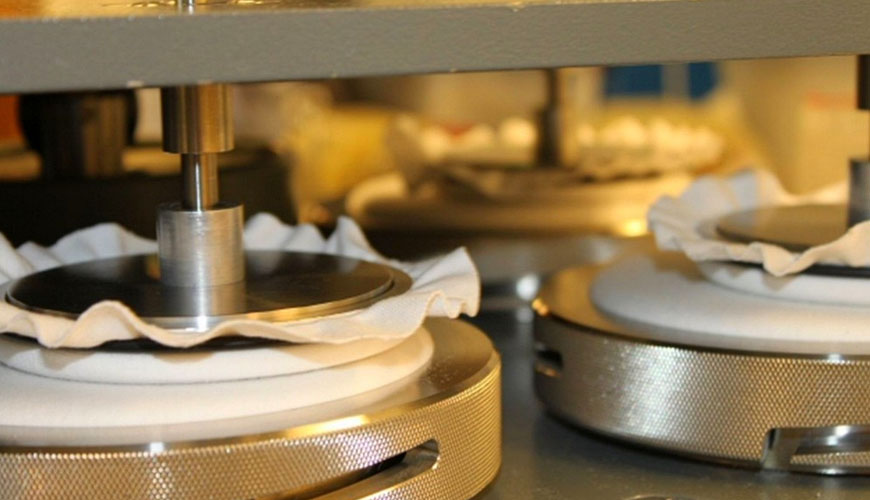

EUROLAB laboratory provides testing and compliance services within the scope of EN 16711-2 standard. This European standard covers a procedure for the determination of antimony (Sb), arsenic (As), cadmium (Cd), chromium (Cr), cobalt (Co), copper (Cu), lead (Pb), mercury (Hg), nickel .

For the determination of soluble metals, the textile sample is cut into small pieces and extracted with an acidic artificial sweat solution.
Cut a representative subsample of approximately 1 g from the sample with sharp scissors made of non-corrosive material (preferably ceramic) and record the mass to the nearest 0,1 mg. If the textile article consists of several parts, such as knitted cuffs or lining, each material should be tested as a representative composite sample with equal parts of the materials.
Select the number of pieces that can be collected as a composite sample in conjunction with the detection and quantification limits of the instrumental equipment. Weigh the non-separable materials as composite samples. Consider also the different colors of the material for sampling. Avoid contact with metal objects, especially in wet conditions or with abrasive surfaces.
Approximately 1 g of sample is cut into small pieces (about 1 cm2) to ensure adequate wetting and the mass is recorded to the nearest 0,1 mg and transferred to an Erlenmeyer flask or other contamination-free container.
Add 50 ml of acid synthetic sweat solution to the test sample and the plug. The sample is shaken briefly by hand to ensure complete wetting of the textile sample. The sample is then shaken at (37 ± 2)°C for 1 hour. The shaking frequency is adjusted to 60 cycles per minute in the case of a horizontal shaker and 30 cycles per minute using a circular shaker. Alternatively, mixing with a magnetic stirrer is allowed.
EUROLAB assists manufacturers with EN 16711-2 test compliance. Our test experts, with their professional working mission and principles, provide you, our manufacturers and suppliers, the best service and controlled testing process in our laboratories. Thanks to these services, businesses receive more effective, high-performance and quality testing services and provide safe, fast and uninterrupted service to their customers.
To get an appointment, to get more detailed information or to request an evaluation, you can ask us to fill in our form and reach you.